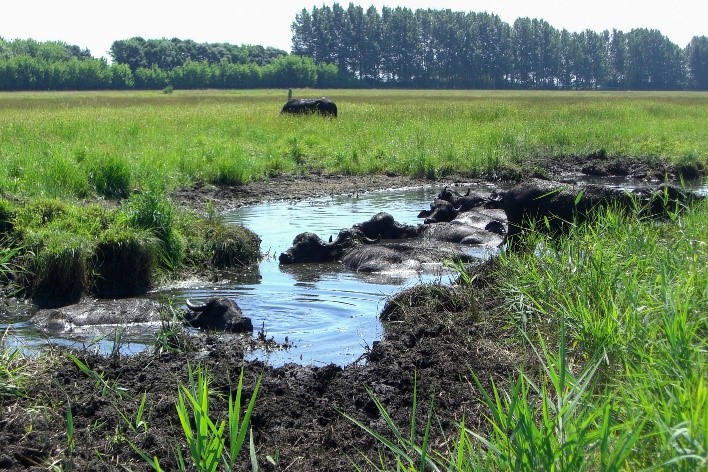
A new CAP for a new role for peatlands
-
Peatlands
On 21 October, the European Parliament was supposed to vote on long awaited CAP reform. A last minute decision, moved the vote on compromised amendments to Tuesday 20 October at 2.30pm.
Wetlands International European Association together with conservationists, farmers and scientists joined forces to urge MEPs to:
REJECT
- amendments 229, 717 and 1141 referring to conditionality and in particular to GAEC 2, whose main objective is “Protection of carbon-rich soils” and to
VOTE YES to:
- amendments n. 866 and n. 1148, §1 c and §1 c (ia) recognising rewetted areas used for paludiculture as agricultural activity, eligible for direct payment
- amendments 732 and 1357 linking public subsidies to basic environmental and social conditions.
These are our voting recommendations in case MEPs vote on the full proposal.
Following the decision to anticipate the vote, we joined other NGOs in recommending MEPs to reject the full proposal by voting Amendment 1147. This would mean to send the decision back to the Commission for a new proposal in line with the Green Deal, Biodiversity Strategy and Farm to Fork strategy.
To ensure that a good CAP proposal also reflects the priorities of the EU Biodiversity, and Farm to Fork Strategies and Climate and energies policies, it is imperative to act on three levels with regards to peatlands:
1) Protect and conserve the remaining intact peatlands. Peatlands make up only around 3% of the world’s land surface, but they contain twice as much carbon as the world’s forests. The importance of their conservation and restoration is increasingly recognised in international climate negotiations[1].
2) Rehabilitate and restore degraded peatlands to prevent not only climate damages, but also fire hazards, (when drained), flooding (due to land subsidence), droughts.
3) Develop and promote sustainable land-use on re-wetted peatlands. The CAP proposal should incentivize successful peatland conservation measures that promote productive agricultural use of peatlands without draining. Landowners within the EU should be encouraged to maintain and re-establish high water levels in peatlands to maximise carbon storage, minimise greenhouse gas emissions and reduce land subsidence.
No landowner in the EU should be economically or socially disadvantaged by maintaining or developing wet peatlands or rewetting peatlands[2].
Find the full letter here
Supporting organisations are:
Greifswald Mire Centre; Michael Succow Fundation; EuroNatur, Wetlands Conservation Centre, Fundacion Global Nature, Wetlands Products, Lithuanian Fund for Nature, Estonian Fund for Nature, Estonian Wetland Society, Radbound University of Nijmegen, Polish Society for the Protection of Birds, Nabu, National University of Ireland, Galway
[1] https://www.wetlands.org/publication/discover-the-source-of-2019/
[2]PEATLANDS IN THE EU. COMMON AGRICULTURE POLICY (CAP) AFTER 2020 Policy Brief, March 2020 Wetlands International, Greifswald Mire Centre, National University of Ireland, Galway
photo credit to Greifswald Mire Center
